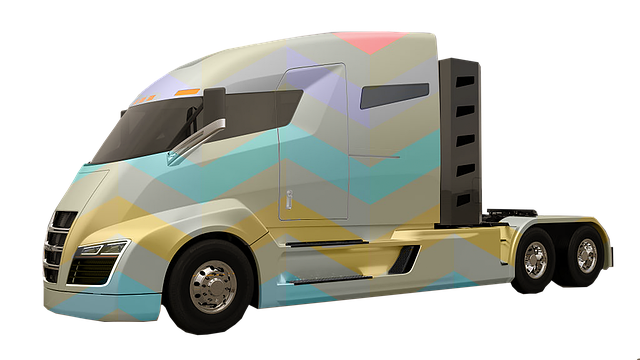Looking to register your car in California? This comprehensive guide breaks down the process, from understanding key requirements to avoiding common pitfalls. We explore essential documents needed, step-by-step instructions for VIN verification—a crucial step ensuring vehicle authenticity—and navigating the DMV registration process. Learn how to efficiently complete car registration, ensuring your vehicle is legally compliant on California’s roads.
- Understand California Vehicle Registration Requirements
- Gather Necessary Documents for Car Registration
- Perform VIN Verification: Steps and Importance
- Visit a DMV: Registration Process & Fees
- Finalize Car Registration: Tips & Common Pitfalls Avoided
Understand California Vehicle Registration Requirements

Before registering your vehicle in California, it’s crucial to understand the state’s specific requirements for vehicle registration. One essential step is ensuring accurate and up-to-date information, including a valid Vehicle Identification Number (VIN) verification. The VIN is a unique code that identifies your car, and proper documentation is vital for a successful registration process.
In California, you’ll need to provide proof of identification, ownership, and vehicle condition. A mobile vin verifier or mobile vin inspection can be handy in this process as it allows for quick and convenient verification of your vehicle’s history and specifications. This ensures that all documents are in order, including any required emissions tests, insurance proofs, and registration fees.
Gather Necessary Documents for Car Registration

Before you begin the registration process, it’s crucial to gather all the essential documents for car registration in California. One critical step is completing a Vehicle Identification Number (VIN) verification. This process ensures the accuracy of your vehicle’s details and can be done through a mobile VIN verification or vin inspection service, making it more convenient than visiting a DMV branch.
During this verification, you’ll need to provide proof of ownership, typically a title document, as well as valid identification such as a driver’s license. An up-to-date insurance card is also mandatory. These documents are vital for establishing your identity and ensuring your vehicle’s eligibility for registration. Additionally, have your VIN number readily available, which can be found on the vehicle’s certificate of origin or engine compartment, or through simple online checks using mobile vin inspection tools.
Perform VIN Verification: Steps and Importance

Performing a VIN (Vehicle Identification Number) verification is a crucial step in registering your car in California. It ensures that the vehicle’s history is accurate and free from any discrepancies, which is essential for both safety and legal reasons. This process involves cross-referencing the VIN with reliable databases to gather information about the car’s past, including ownership history, accident reports, and outstanding loans or leases.
You can facilitate this process with a mobile vin verifier or undergo a mobile vin inspection. These services use advanced technology to swiftly and accurately retrieve data associated with the VIN. By ensuring your car has a clean bill of health through proper VIN verification, you’ll be well on your way to completing the registration process smoothly in California.
Visit a DMV: Registration Process & Fees

To start the registration process for your car in California, visit a local Department of Motor Vehicles (DMV) office. Bring all necessary documents, including proof of ownership, identification, and insurance. The DMV will require a valid vehicle inspection report, which can be obtained through a mobile vin verifier or by scheduling a traditional vin inspection. This step ensures that your car meets safety and emissions standards.
Once your paperwork is in order, a DMV representative will guide you through the registration process. Fees vary based on the type of vehicle and any additional services required, but you can expect to pay around $50 for a standard registration. It’s advisable to check their website for the latest fee schedules and any updates regarding vin verification requirements before your visit.
Finalize Car Registration: Tips & Common Pitfalls Avoided

After gathering all the necessary documents, it’s time to finalize your car registration. One crucial step often overlooked is ensuring a proper vin verification. This process verifies the vehicle identification number (VIN) and its history, which can help avoid common pitfalls like stolen vehicles or outstanding loans. A mobile vin inspection or mobile vin verification service can be particularly handy, as it allows you to complete this critical step conveniently at your location.
During registration, pay close attention to details, double-check all entered information, and ensure the VIN on the title matches the one on your car. Mistakes or discrepancies may lead to delays or even rejection of your registration. Always keep records of every document and communication for reference, especially when utilizing mobile vin verification services, as having a paper trail can streamline any potential issues that arise during the registration process.
Registering a car in California involves understanding key requirements, gathering essential documents, and completing crucial steps like VIN verification. By following the registration process outlined in this guide—from preparing necessary paperwork to visiting a DMV—you can ensure a smooth and efficient experience. Remember, proper vehicle registration is not only a legal necessity but also a vital step in protecting your investment and maintaining California’s roads safely.
